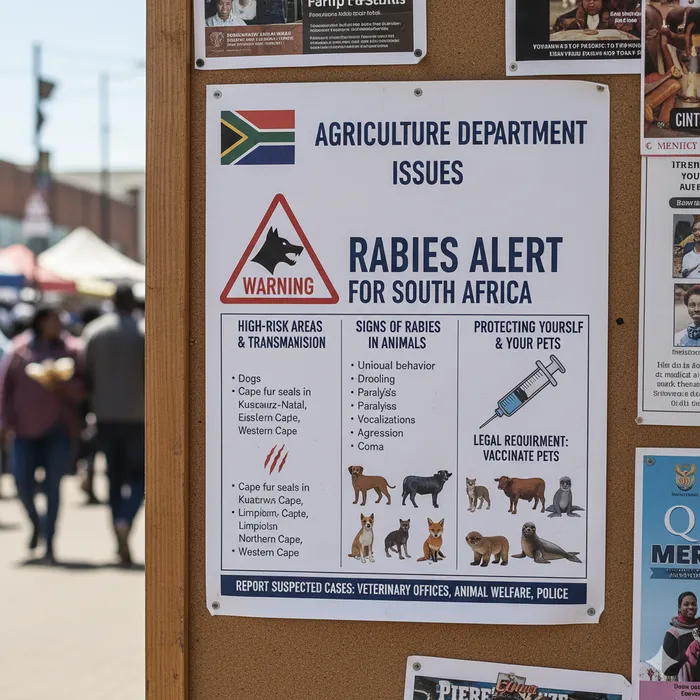
The Department of Agriculture has warned the public about rabies in South Africa, affecting dogs, Cape fur seals, and other mammals. Human deaths from rabies have already been reported in KwaZulu-Natal, Eastern Cape, and Limpopo this year.
Image: Gemini
The Department of Agriculture has issued a public alert regarding high-risk areas for rabies across South Africa, warning that the deadly viral disease is present in dogs, Cape fur seals, and other mammals. Rabies, which affects the brain and is fatal once clinical symptoms appear, can be transmitted to humans through bites, scratches, or even licks from infected animals.
The department confirmed that human deaths from rabies contracted from dogs have already been recorded in KwaZulu-Natal, Eastern Cape, and Limpopo in 2025. Members of the public are urged to avoid contact with stray animals and to report any suspected cases to local state veterinary offices, animal welfare organisations, or the police.
According to Kimberley SPCA manager and inspector Mario Van der Westhuizen, there have been no reports of rabies in Kimberley and surrounding areas, but he advises animal owners to make sure that their animals are vaccinated.
Rabies has also become endemic among Cape fur seals, with some cases detected on beaches in the Northern Cape, Western Cape, and Eastern Cape, extending as far as Algoa Bay. The public is reminded that seals may carry other diseases and have sharp teeth that can cause injury, so a safe distance should always be maintained, particularly from seal pups.
Animals infected with rabies may display unusual behaviour, excessive drooling, paralysis, inability to swallow, continuous vocalisations such as barking or howling, aggression, weakness, or comatose states. Any mammal, including dogs, cats, livestock, jackals, foxes, mongooses, and seals, can be infected.
If bitten, scratched, or licked by an animal suspected of having rabies, individuals should immediately wash the wound with soap and running water for at least 15 minutes and seek medical treatment at the nearest clinic or hospital.
Pet owners are reminded that vaccinating dogs and cats against rabies is a legal requirement. Animals should be kept under control or on a leash to avoid contact with potentially infected animals. Travellers are encouraged to ensure that their pets’ vaccinations are current and to carry vaccination booklets when away from home. Vaccinations are available through local state veterinarians, animal health technicians, private veterinarians, or animal welfare organisations.
Rabies remains a serious public health risk in South Africa, and awareness, prevention, and prompt action remain the best measures to protect both humans and animals.